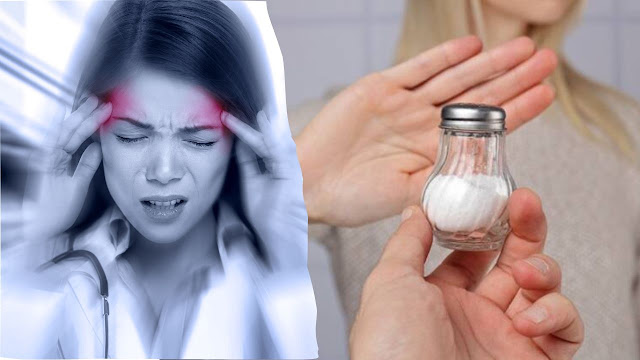Meniere's disease is a disease that affects the inner ear. People who have this disease suffer from balance and hearing problems. The endolymphatic sac becomes swollen in the canal of people who have this disorder. The sac serves as a filter and removes fluids in the semicircular canals of the inner ear.
Experts don't know the actual cause of Meniere's disease, but they believe that head injuries, middle ear infections, and syphilis are sometimes related causes.
Other factors that may contribute to or worsen the disease include allergies, alcohol usage, fatigue, viral illness, respiratory infection, smoking, stress, certain medications, and high-sodium diets.
Statistics show that Meniere's disease is affecting approximately 2 out of every 1,000 people and about 12 per 1000 people worldwide. This means there are about a half million sufferers in the US alone.
Approximately 75% of the people affected have it in just one ear while about 25% have it in both ears. It has a tendency is to strike people in their 40s and 50s with a few cases of people in their 20s, and no reports affecting children.
Meniere's disease has a variety of common symptoms that may be related to other health concerns. It is always best to consult a doctor if you think you may have this disease.
Common symptoms are:
- Sudden onsets of vertigo which can be a whirling sensation or feeling like the room is spinning (not really dizziness)
- Nausea
- Vomiting
- Sweating
- Symptoms of tinnitus, which is a roaring, ringing, buzzing, whistling, or hissing sound in the ear
- Hearing loss
- Fullness or pressure in the ear
These symptoms may last for a brief period of time, hours, and sometimes even days. Over time this causes progressive hearing loss upwards of 50 to 90 percent. There are a variety of tests that doctors perform including caloric stimulation, head CT scan/head MRI scan, and hearing tests.
At this time there is no actual cure for Meniere's disease, but there are ways that people can manage it effectively and they include:
- Water pills
- Dimming bright lights
- Avoiding activities that can cause vertigo with sudden changes in movement
- Following a low-sodium diet
Perhaps one of the easiest and most effective ways of easing the symptoms of this disease is by following a low-sodium diet. Lowering your daily sodium intake is believed to be an effective way to reduce symptoms of vertigo, and help to alleviate pressure in the ear, and other symptoms.
You may not think that you consume that much sodium, but upon a closer look, you will probably find that there is a lot of sodium in things that you may not even think about including the seasonings that you use in your foods.
It's not just about eliminating salt, at the table or when cooking, although this should be the first step. It's that salt and sodium seem to be in just about everything. There is a lot of hidden salt and sodium in everyday food especially processed food, fast food, and even bread and pastries that you might not think of at first.
There is a lot of sodium in most seasonings, flavor packets, and canned soups, even if they don't taste too salty, there is usually more sodium than you might think.
Using salt-free seasonings, a good salt substitute, reading the sodium amounts on food labels along with the serving sizes, and becoming more aware and knowledgeable of which foods are high in sodium, can help you get the salt out of your diet and thereby lowering your daily sodium intake.
This can lower fluid retention which is necessary for most to effectively manage this potentially debilitating disorder. Salt-free seasonings can help you enjoy more flavorful food and a low-sodium diet can help you successfully cope with vertigo, tinnitus, and other symptoms of Meniere's disease.
CAUTION: Now I need you to pay very close attention to this
Vertigo and Dizziness Eliminated Without Drugs
These Easy, 15 Minutes, Head Balance Exercises Treat All Types of Vertigo and Dizziness - Starting Today!
If you think your vertigo or occasional dizziness is just an inconvenience…
You’re Dead Wrong!
- Vertigo is the number one cause of broken bones and head injuries in people over 55.
- It often leads to deadly head fractures and loss of cognitive function due to internal bleeding and brain injuries.
- It’s the most frequent complaint doctors receive.
- And worst of all, it’s a clear indicator that you’re at high risk of stroke – you could experience one any minute now.
The traditional medical system has no solution.
They don’t even know what causes it in most cases.
Fortunately, natural researchers have successfully found a solution to all types of vertigo and dizziness.
The cure is a set of simple head exercises.
- They’re completely natural – require no medications or surgery.
- They’re easy – almost anyone can benefit from them, no matter what kind of shape you’re in.
- They only take 3-15 minutes per day – and because the results are permanent, once you’re cured, you don’t have to use them again.
- They work fast – many people experience immediate relief. Others need a few days or weeks at the most.
…and they work for almost everyone!
Today I’m going to teach you these easy vertigo and dizziness exercises. Click here to continue…


.png)